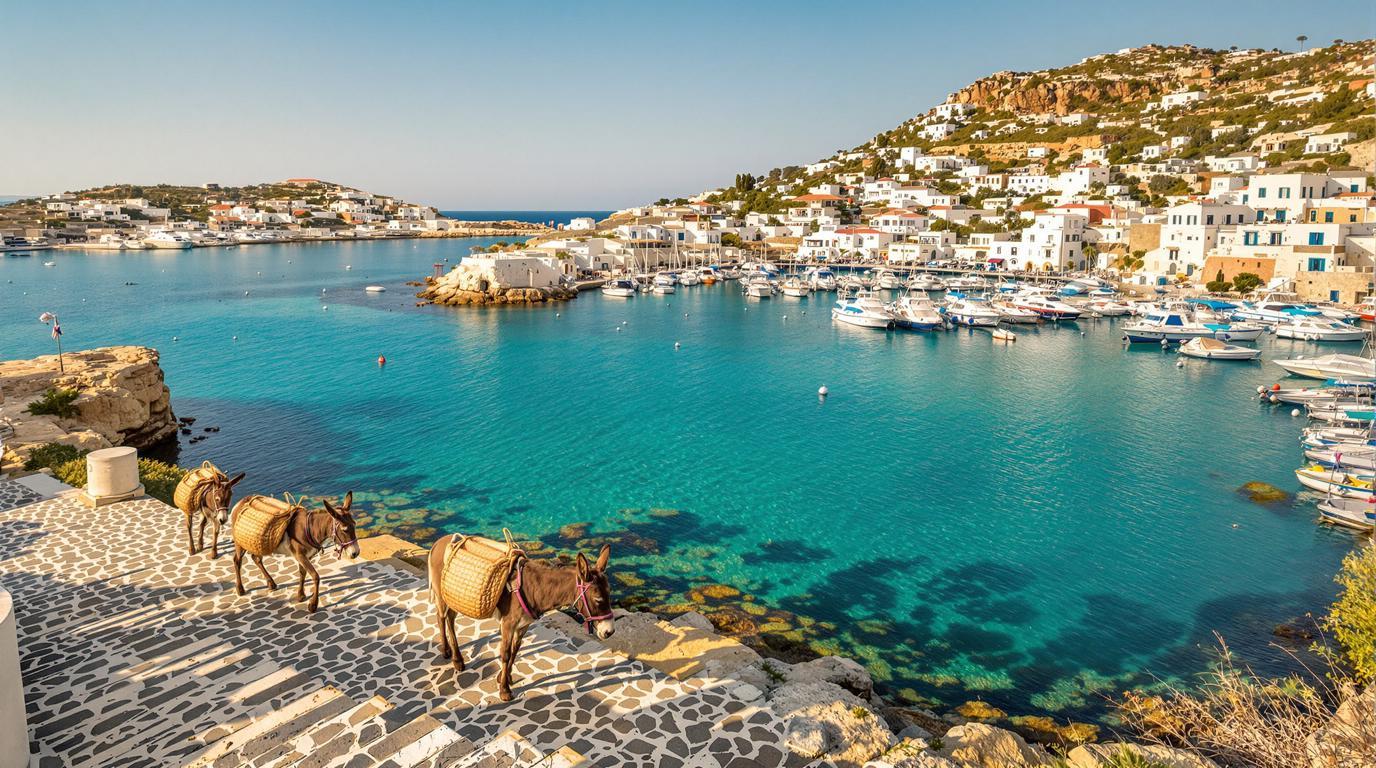The sight hits you before the sound—a waterfront where donkeys gather instead of cars, their bells tinkling against a backdrop of impossibly blue water. Welcome to Hydra, the Greek island where time refuses to speed up, and modern transportation never gained a foothold.
A Mediterranean time capsule frozen in tranquility
Just 55 miles from Athens lies a 25-square-mile paradise where the 20th century’s mechanical revolution never arrived. Hydra (pronounced EE-dra) stands as Greece’s most stubbornly traditional island, having banned all wheeled vehicles—no cars, no scooters, not even bicycles disturb the rhythmic clip-clop of hooves on cobblestone.
“Our island breathes differently without engines,” explains Dimitris, a local donkey handler whose family has transported goods for four generations. “The silence allows you to hear the sea, the birds, and your own thoughts. This is our greatest luxury.”
Where donkeys reign as transportation kings
Approximately 1,000 donkeys and mules serve as the island’s transportation network, carrying everything from building materials to designer luggage. Upon arriving at Hydra’s crescent-shaped harbor, visitors quickly realize these aren’t mere tourist attractions—they’re essential infrastructure.
The animals navigate narrow stone pathways connecting whitewashed homes that cascade down steep hillsides. For a few euros, they’ll carry your suitcase to accommodations unreachable by motorized vehicle, a charming alternative to mainland traffic jams.
Turquoise waters that rival the Caribbean
What Hydra lacks in sandy beaches, it makes up for with crystalline swimming spots. The island’s rocky coastline creates natural infinity pools where the Mediterranean appears in a mesmerizing spectrum of blues—from pale aquamarine near the shore to deep cobalt offshore.
Spilia and Hydronetta, two popular swimming platforms near the main port, offer dramatic diving spots where locals plunge from smooth rocks into transparent depths. For more secluded swimming, water taxis ferry visitors to Vlychos and Bisti beaches, where the water clarity rivals that of Europe’s most dazzling hidden gems.
An artistic haven since the 1950s
Leonard Cohen fell in love with Hydra in the 1960s, purchasing a home where he wrote some of his most famous works. The island’s timeless atmosphere continues attracting painters, writers, and musicians seeking inspiration in its unchanged landscape.
“There’s a magical quality to the light here,” notes Helena, a local gallery owner. “The combination of stark architecture against the sea creates shadows and reflections you won’t find elsewhere, even in more famous mystical landscapes.”
Where history whispers from stone walls
Hydra’s architecture tells stories of maritime prosperity. In the 18th century, the island’s powerful merchant fleet battled pirates and built fortunes. Today, the grandest captain’s mansions house small museums documenting this seafaring heritage, reminiscent of other preserved historical treasures.
The medieval Kiafas Fortress offers breathtaking panoramic views for those willing to climb the island’s highest accessible point. Like Scotland’s enchanted castle-topped capital, these defensive walls tell tales of a strategic past.
A sacred connection to animals
The relationship between Hydriots and their donkeys reflects a deep respect for animals rarely seen in modern society. While visitors might initially view the practice as quaint, locals understand these creatures as essential partners—not unlike the sacred deer that have coexisted with humans for centuries in ancient Nara.
“These animals know the island better than GPS,” laughs Yannis, a third-generation donkey owner. “They remember every path, every shortcut. Sometimes I think they could deliver packages without us.”
This Greek treasure offers something increasingly precious in our hyperconnected world—genuine disconnection. Without vehicles rushing past, life moves at human speed. Conversations linger, meals stretch into hours, and the journey between destinations becomes as meaningful as the arrival.
On Hydra, the absence of modern transportation isn’t a limitation but a liberation—a rare place where removing something from the equation has made everything exponentially richer.
